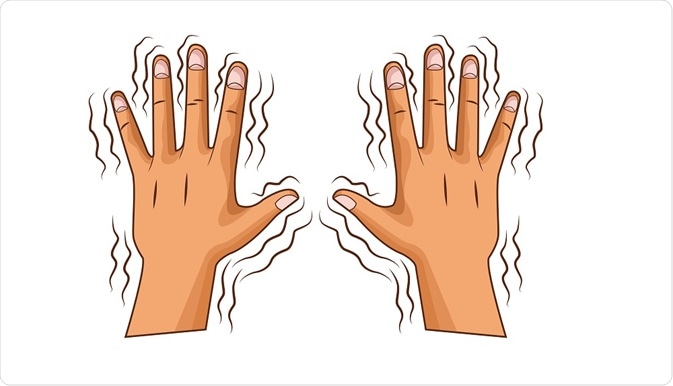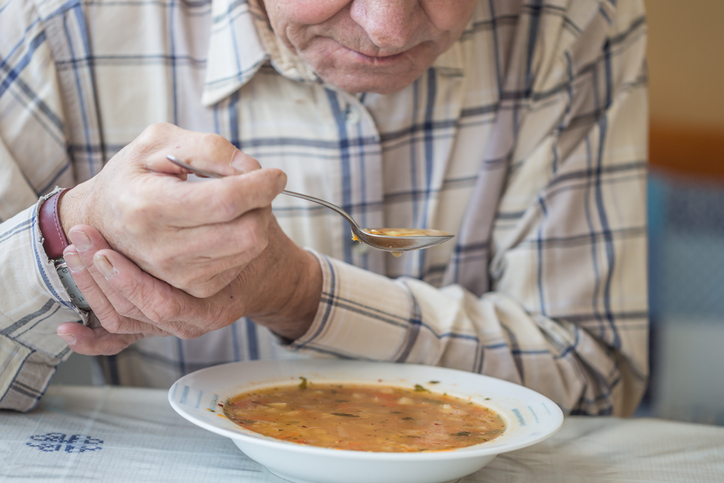

CONSULTATIONS FOR MOVEMENT DISORDERS
Dr. Narendra Barad is currently the only neurologist in Gujarat, who is looking exclusively Parkinson and other movement disorders cases. He and his team offers special expertise in the full range of neurological disorders, especially in Parkinson & other movement disorders.
At Dr. Barad Clinic, Ahmedabad, patients who need an initial diagnosis, a second opinion, or ongoing care for a various chronic and acute neurological disorders will find help and hope.
Our neurological specialties consultations include:
1. CONSULTATION FOR PARKINSONISM & RELATED DISORDERS
Parkinson’s disease is a common neurodegenerative disorder affecting many people around the world. Parkinson’s disease is, in general, a slowly progressive disease, though it develops differently for each person. Dr. Narendra is specialized in providing the full range of consultations, treatment and therapies for Parkinson’s disease.
SYMPTOMS OF PARKINSONISM
2. CONSULTATION FOR DYSTONIA
Dystonia – means involuntary twisting and/or turning of body parts.
Dystonia is a neurological movement disorder syndrome in which sustained or repetitive muscle contractions result in twisting and repetitive movements or abnormal fixed postures. It may affect one or more parts of the body and sometimes the entire body. The condition can be mild or severe.
The main symptom is involuntary muscle contractions that result in slow repetitive movements, cramps or abnormal posture.
TYPES OF DYSTONIA
3. CONSULTATION FOR TREMOR
Tremor – A nervous system disorder that causes rhythmic shaking.
Tremor most often affects the hands, though it may also affect the head, voice, arms or legs. If tremor is more on one side possibility of being it Dystonic or Parkinsonian is high. Shaking occurs with simple tasks such as tying shoelaces, writing or shaving.
Diagnosing tremors is quite easy. Your doctor will notice the signs and symptoms, ask you about your medical and family history. Further, certain specific tests are carried out to exclude any other reasons for tremors.
TYPES OF TREMORS
4. CONSULTATION/DIAGNOSIS FOR CHOREA
Chorea – means involuntary movements of limbs or body look like dancing movements.
Chorea symptoms can range from minor movements, such as fidgeting, to severe uncontrolled arm and leg movements. It can also interfere with:
- speech
- swallowing
- posture
- gait
It can occur at any age, but more common in childhood and above the age of 40 years. The diagnosis of chorea is tricky and may require many investigations.
5. CONSULTATION FOR EPILEPSY
Epilepsy – involuntary jerking and/or tightening of body parts and other features.
Epilepsy is one of the most common neurological disorders in which repeated episodes of jerking of body parts along with tightening of body occur with or without loss of consciousness. Epilepsy is also known as fits or seizures.
Epilepsy is usually treated by medication and in some cases by surgery, devices or dietary changes. Though the main epilepsy symptom is repeated seizures, but if someone experiences any of the following, they must consult a doctor.
- Sudden onset jerking of one or all body parts
- Sudden loss of consciousness
- Tongue bite or involuntary passage of urine
- Involuntary movements of eyes, lips or limbs
- Sudden abnormal posturing of limbs or body
- Unresposiveness with normal pulse and blood pressure
- Sudden giddiness or unexplained fall
- Sudden change in behaviour, etc.
6. Consultation for other Movement Disorders at Dr. Barad’s Clinic - Ahmedabad
MYOCLONUS
means sudden brief jerks affecting body parts
In myoclonus patients can have sudden jerk like movements and there are multiple reasons for this movement disorder. Consultation with myoclonus expert is very important for its timely diagnosis and treatment.
TICS
A compulsive, repetitive sound or movement that’s often difficult to control.
In this patients make sudden movements of limbs, face or eyes. In some cases, tics may affect voice and in such cases patient make sudden involuntary sound or shout. In some cases, proper evaluation followed by appropriate medications help a lot to overcome the stress associated with tic disorder.
ATAXIA
Impaired balance or coordination, can be due to damage to brain, nerves or muscles.
Ataxia is a neurological sign consisting of lack of voluntary coordination of muscle movements that can include gait abnormality, speech changes, and abnormalities in eye movements.
Ataxia can affect upper limbs, lower limbs and/or body. Based on that patients may have difficulties in doing certain activities with upper limbs, patients may have difficulty in walking with tendency to sway in any direction, change in speech, etc. There are multiple reasons for ataxia. Timely diagnosis and treatment make a lot of differences in majority cases.
REHABILITATION SERVICES GUIDANCE
Some movement disorders (particularly atypical parkinsonism) are due to neurodegeneration with progressive course. In Such cases, proper guidance for rehabilitation will help a lot. If we understand rehabilitation scope in such cases it makes a huge difference in fighting such disorders.
COUNSELING AND PATIENT CARE ADVICES INCLUDING END OF LIFE CARE ADVICE
In some progressive benign movement disorders, patient require lifelong care giver support. If care giver is given a proper counselling and guidance on how to manage a particular patient, based on patient disease course it reduce care giver burden a lot. A personalised care giver approach for each patient based on his/her disease profile is utmost important in managing such patients.
